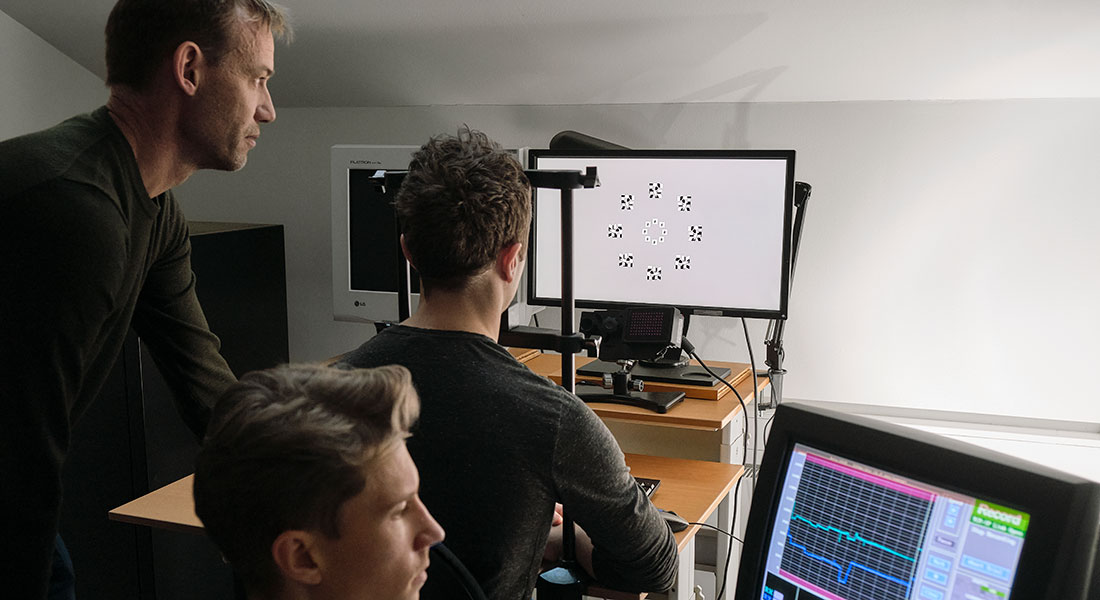The mobile phone is often blamed for drowning us in information and stealing our attention. But it is rather our inner reward system that our phones and tech companies utilize, shows new research from the University of Copenhagen.

We often hear that we live in an attention economy, where tech companies like Google, Apple, and Facebook present us with an overwhelming amount of irresistible information that steals our attention.
This is not wrong, but our understanding of how attention works is imprecise. In a new study, researchers from the University of Copenhagen show that our attention works surprisingly well. And that it enables us to achieve exactly what our brains most desire - rewards.
In a series of controlled experiments that have just been published in the article Testing Biased Competition Between Attention Shifts, the researchers have studied what causes people to turn their attention towards a particular action when they are presented with a number of different courses of action.
In the experiments, the choices were represented by a series of boxes on a computer screen, which could hold between 1 and 9 points. Each box was associated with a corner of the screen where a random letter was displayed. The task was then to report one of the letters and thus earn the points indicated by the box.
"The participants in our experiments were presented with four boxes at once and had to quickly shift their attention to one of the possibilities. They marked the attention shift by entering a letter, which was presented in the corner of the screen. The process had to be repeated thousands of times by each individual participant, so we could be certain that it was not a matter of chance," explains Associate Professor Thor Grünbaum from the Cognition, Intention and Action research group, which he heads together with Professor Søren Kyllingsbæk.
He continues:
"Our experiments show that the participants prepare several attention shifts at the same time. That is, several attention shifts compete simultaneously to be performed. By associating the different shifts with different rewards, we can show that the shift associated with the highest reward usually wins. The experiments therefore show that reward is a decisive factor in determining what we notice and remember to do when we are presented with multiple opportunities."
Therefore, Thor Grünbaum and Søren Kyllingsbæk also believe that it is imprecise to talk about the digital world stealing or controlling our attention. It is almost the opposite. The technologies often exploit our ability to choose exactly the content that gives us the greatest reward when presented with a wide range of possibilities. In other words, what tech companies leverage are our subjective values by rewarding our attention shifts and actions.
Habits versus rewards
Normally we think of habits as close to unbreakable, but here too the experiment can tell us something important, says Thor Grünbaum:
"It tells us something about our behaviour in a situation where we have been trained for a certain action. The participants in our experiments spent a lot of time learning how to connect a single box with a shift of attention to a particular corner of the screen. Training the attention shifts should make them into habits. When they are presented with four competing actions that they have a short time to decide on, we show that they choose the reward over the habitual behaviour," says Thor Grünbaum.
In the experimental situation, the action with the highest subjective value is most likely to be selected, even though other actions have been trained extensively, conclude Thor Grünbaum and Søren Kyllingsbæk.
This means that a person's values compete with ingrained habits - a competition the habit often loses if another action is more important. This insight is also worth bringing into the discussion about attention economy.
Long-term planning
The next step for the researchers will be a project in which they will examine how we plan in the long term. The current experiment shows something about what activates our shift in attention in the short term, but what happens when we try to plan actions in the future?
"If I have now decided to buy flour on the way home from work, I have to save the action in my long-term memory. What we want to understand is how we go about recalling the things we set out to do. Especially when we have planned several different actions, which we typically do," says Thor Grünbaum.
Thor Grünbaum and Søren Kyllingsbæk expect that here too we will focus our attention on the action to which we attach the highest value. But when we are in the real world as opposed to a laboratory, other factors come into play.
"Previous research has shown that our surroundings play an important role in how we remember things. Therefore, one can imagine that my plan to buy flour will be activated if I see a supermarket sign on my way home from work. We are developing experimental designs to study the factors involved in the selection between competing plans."






